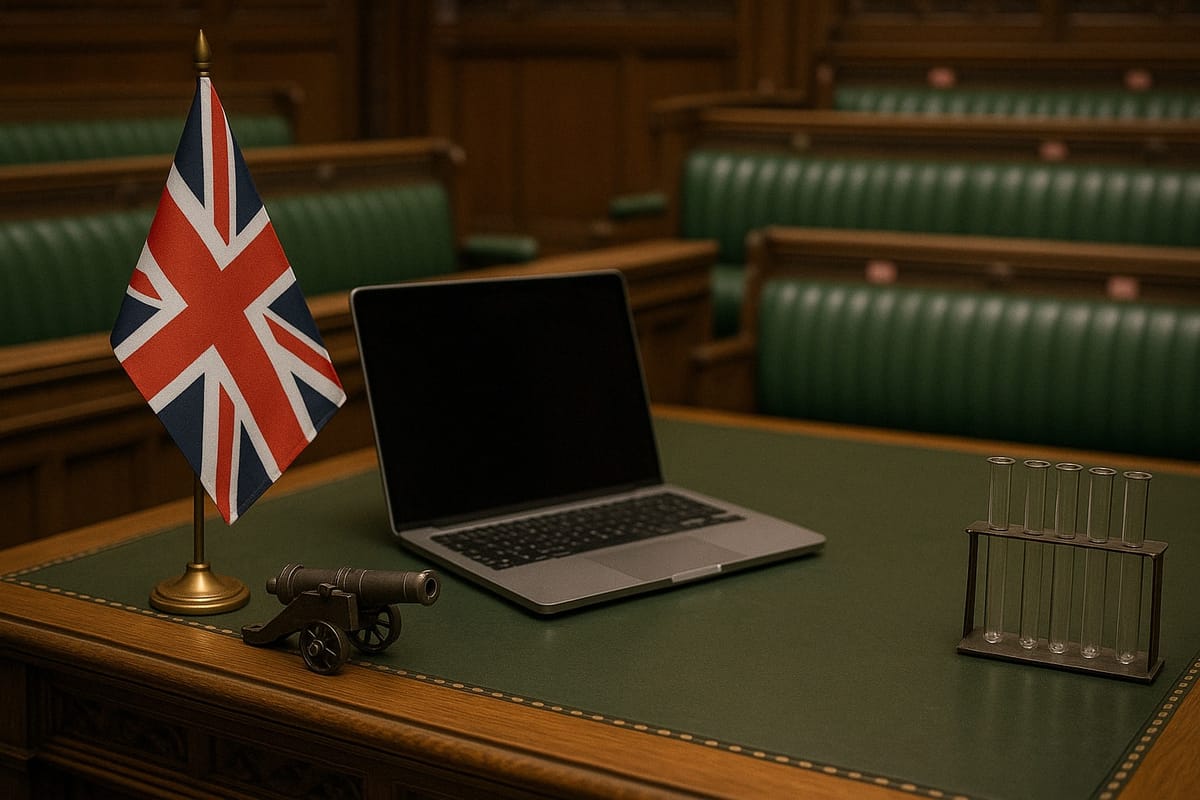"R&D is a trade war weapon and the UK needs to rearm immediately"
"The last decade was dominated by tariff skirmishes. The next one may be defined by something far more strategic..."

As the world digests the possibility that China may have already overtaken the U.S. in total R&D spending, as outlined in the latest report by the Information Technology and Innovation Foundation (ITIF), a new global dynamic is emerging - not defined by tariffs, but by tax reliefs.
"R&D investment drives U.S. competitiveness, but China has likely overtaken America, especially in light of recent cuts to federal science spending under the Trump administration," the ITIF wrote.
The last decade was dominated by tariff skirmishes. The next one may well be defined by something far more strategic: a race to the top in R&D tax relief. And the implications could be seismic.
R&D as a competitive battleground
China’s R&D investment has grown not just in size but in sophistication. Beyond the raw numbers, we’re seeing a systemic approach: central government funding paired with provincial R&D incentives, strategic investment in emerging technologies, and direct tax reliefs to lure global firms into Chinese R&D zones.
Other nations are already responding:
- France has doubled down on its Crédit d'Impôt Recherche, making it one of the most generous schemes in Europe.
- Ireland is modernising its system to be more innovation-output focused.
- The U.S. recently reinstated full expensing of R&D under pressure from domestic tech and manufacturing lobby groups.
So the question becomes: Will the UK sit back - or fight back?
What the UK must do next
The UK’s R&D tax relief system has long been a magnet for innovation investment, but recent changes have introduced complexity, uncertainty, and friction - particularly for SMEs and global R&D hubs trying to assess where to build their next lab, hire their next scientist, or submit their next claim.
If the UK wants to remain competitive in a world where R&D tax relief policy shapes the global map of innovation, it must act urgently to:
- Simplify the system - Merge SME and RDEC schemes more effectively, remove administrative friction, and offer clear guidance.
- Reward IP-rich R&D - Incentivise the development and retention of IP in the UK with expanded patent box and AI-specific incentives.
- Signal long-term stability - Give multinationals confidence that UK R&D policy won’t shift every Budget but will be part of a 10-year innovation strategy.
- Invest in compliance technology - Fund digital-first, AI-enhanced platforms to process and verify claims faster and more transparently.
The next war is quiet - but critical
This isn’t a war of words or tariffs. It’s a silent competition, where the country with the most attractive R&D environment doesn’t shout the loudest - it simply gets picked more often.
If the UK wants to win its share of the innovation future, it must not only defend its R&D system, but actively promote and moderniseit. Otherwise, while we debate reform, other nations will quietly walk away with the very businesses we hope to build here.
Dr Brian Williamson, formerly CEO of Jumpstart - one of the first R&D tax specialists in the UK market, is Chief Strategy Officer at Kreoh.




